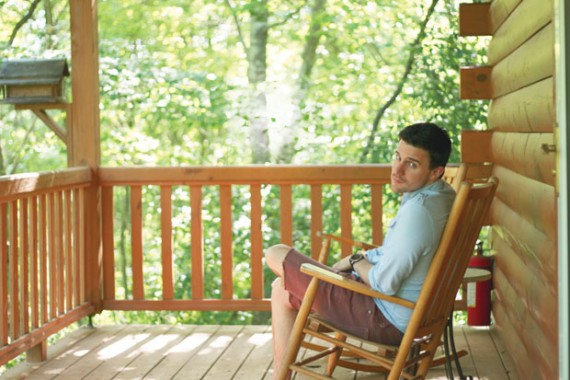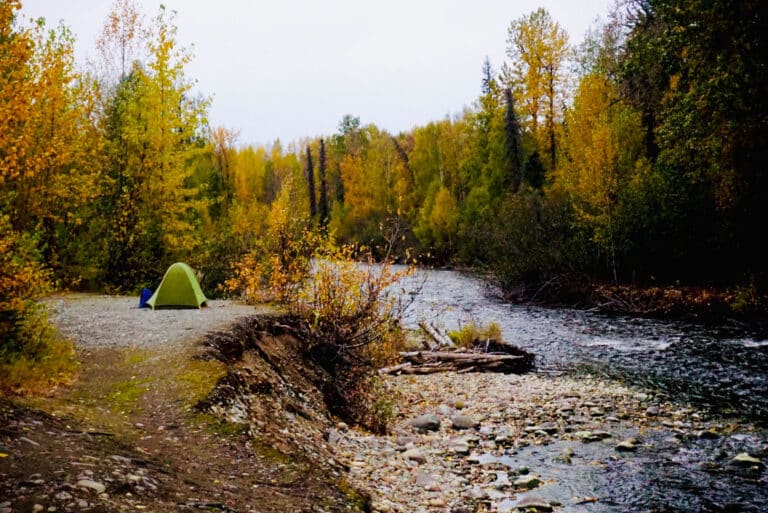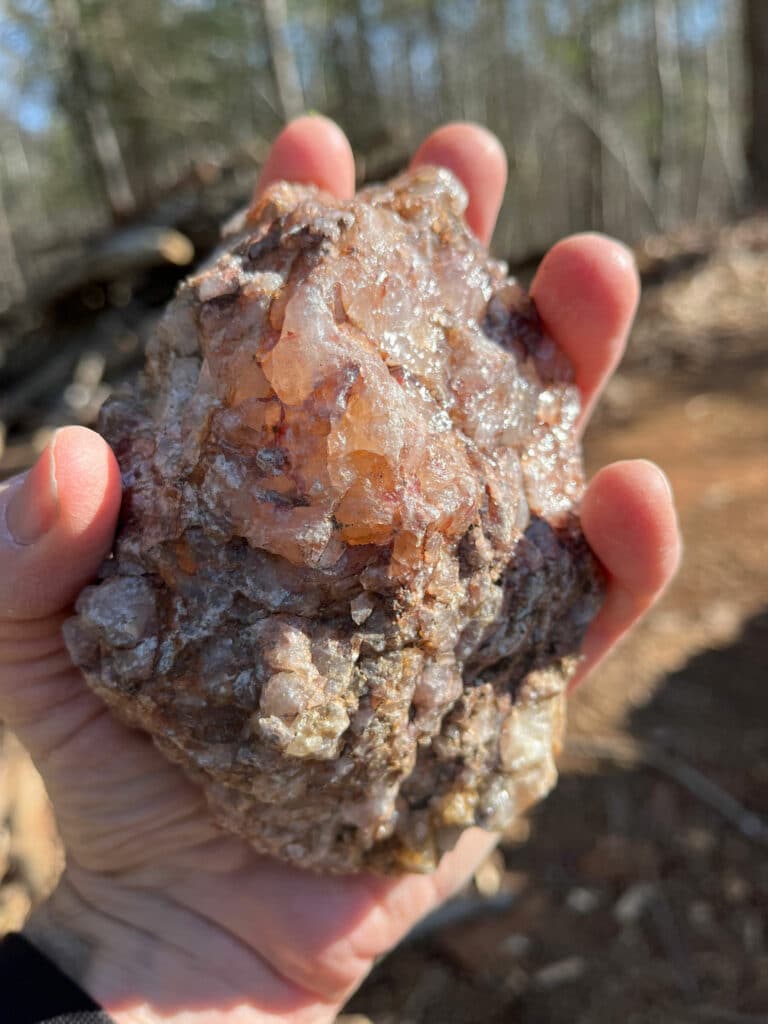Roughing it is overrated. The outdoors doesn’t always have to be so tough.
My wife and I were headed to celebrate our first anniversary as we rolled through Wytheville, Va., on our way to a cabin outside of town. The wonder of metropolitan Wytheville gave way to a small country lane that snaked through meadows filled with daffodils and cantering horses. After about 30 minutes, we came to the road that was home to the cabin where we were staying. We turned onto it.
The gravel crunched under the car tires as we drove in. A good dozen cats lazed in the road, making no effort to get out of the way as we rolled up. Finally, I had to put the car in park, get out and start waving my arms like a deranged bird until one white cat finally got up, stretched like a retiree waking from his nap, and took his time slinking over to the main house of the property. The other cats followed suit. We pulled up to where they were all congregating, went inside, and made small talk with the owner, a genial guy in his 50s named Paul.
After a few minutes, he sent us on our way to our cabin. I should say that this was not roughing it. I’ve roughed it many times before—slept on the ground, on buses in India, on flea-bitten cots in the Thai hinterlands. This was not that. This was new, waxed wood floors; satellite TV (we didn’t turn it on, at least); an in-room jacuzzi; little firelighter cups to make it all but impossible to fail to get the fire going. But we weren’t there to rough it.
There are two ways to find communion with nature. The first is the against-all-odds struggle, the punishing scramble up sheer rock face, the just-this-side-of-helpless flailing kayak run through a minefield of jagged rock that leaves you panting and trembling afterward. And there’s certainly something to it: You come out of it awed, victorious, and alive, in every possible way.
But there’s also something to be said for the other way. The hours-long porch sit, the wordless stare out into the wild as you take long pulls on a sweating bottle of cold beer. The leathery flutter of bat wings and the ratchet-like shriek of a thumb-sized tree frog making a sound the size of the sky. The peace which passes understanding.
This was that—or it was supposed to be anyway. That first night, we made the drive into town for groceries. By the time we got back, it was already dark. We opened the door, and a mantis-looking bug that was literally the size of a robin shot out from behind it. I may or may not have involuntarily thrown my keys at it and screamed at the top of my lungs (but it was, like, a Kiefer Sutherland growl-scream, with cuss words! Just really, super manly).
My wife the bug-phobe cowered inside while I grilled our steaks out on the porch in the pitch dark, as turning off the porch light was the only way to calm down the cloud of moths that threatened to swarm and carry me off every time a drip of liquid fat hit the fire and sent a few bright licks of flame shooting through the grill. Every once in a while, the enormous green bat-bug that had been hiding behind the door would cruelly taunt me by flapping its pterodactyl-like wings next to my ear. It felt like helicopter rotors were in a full spin right above my head.
But I survived, and we managed to eat our steaks and microwaved corn and potatoes in peace. The next morning was a different story. There’s this Japanese word—so I hear; don’t speak a lick of Japanese otherwise—komorebi. You know the way sunlight flickers and shimmers through shifting leaves on a summer morning? That’s komorebi. This was a komorebi kind of day.
Paul, the owner, brought us breakfast his wife had just made and then disappeared, leaving us to our cabin, secluded on all sides by stands of sun-touched trees. We sat in rockers on the porch, chewing danish and sipping coffee. The morning sun danced through the leaves. An animal we were never able to identify—could’ve been a donkey, could’ve been a bullfrog, could’ve been an excitable cow—started lowing just out of sight. That and the rustling of the leaves and the occasional whine of a cicada were the only sounds in the air: No cars, no chainsaws, no airplanes. Nothing but the outdoors.
By and by, the sunlight began to dull as giant thunder clouds gathered in the distance, massive anvils that answered the mystery animal’s call with their own rumble. A few heavy, wet drops began to slap at the leaves around us, and then the rain began in earnest. We continued to sit as it drummed the roof of the porch. An occasional sunburst would flare through the clouds and turn the drops into thousands of shimmering little diamonds, and then it was over. The ground started to steam, and a cat that had made its way under the porch during the rainfall scampered up, mewled at us, and trotted back down the road to the main house.
That was what we had come for. We stayed a few days, did some driving, some exploring, some hiking; made it back into town for burgers that I made sure to cook before the sun went down and the bugs emerged from hell to wage war on the porch light and any foolish human who stood near it. But nothing compared to the peace of that second type of communion with nature, the joy of seclusion and silence amid a forest teeming with life.
Eventually, we made the drive back to Charlottesville, with an obligatory stop at Foamhenge along the way, and we were right back at work the next day. But here’s the thing about nature, the true joy of the outdoors, regardless of whether you log any effort or hardship: Even just those few days in a plush cabin were enough to lodge something in us that we’ll carry with us forever. The outdoors give you peace in the wilderness. •








